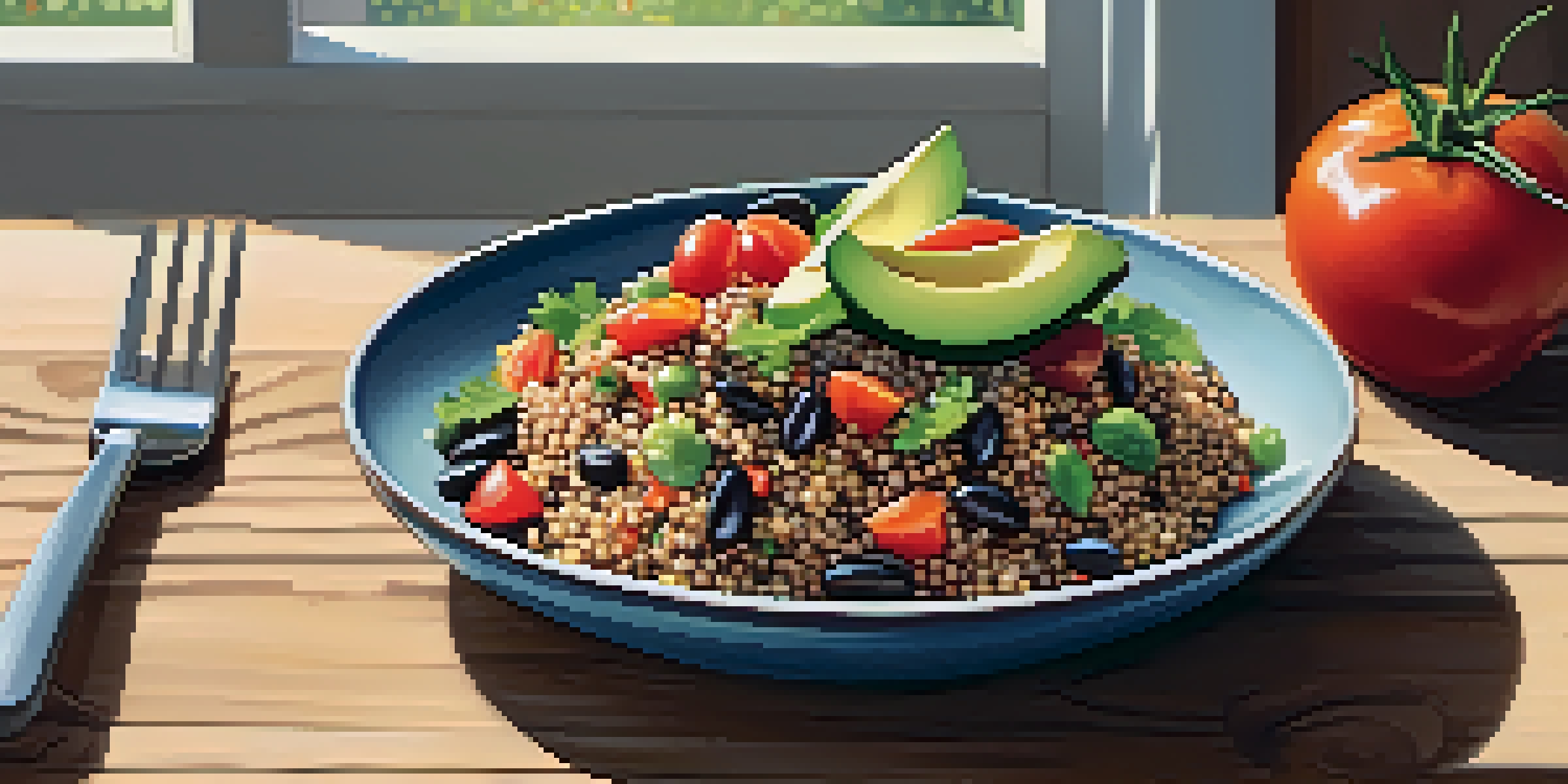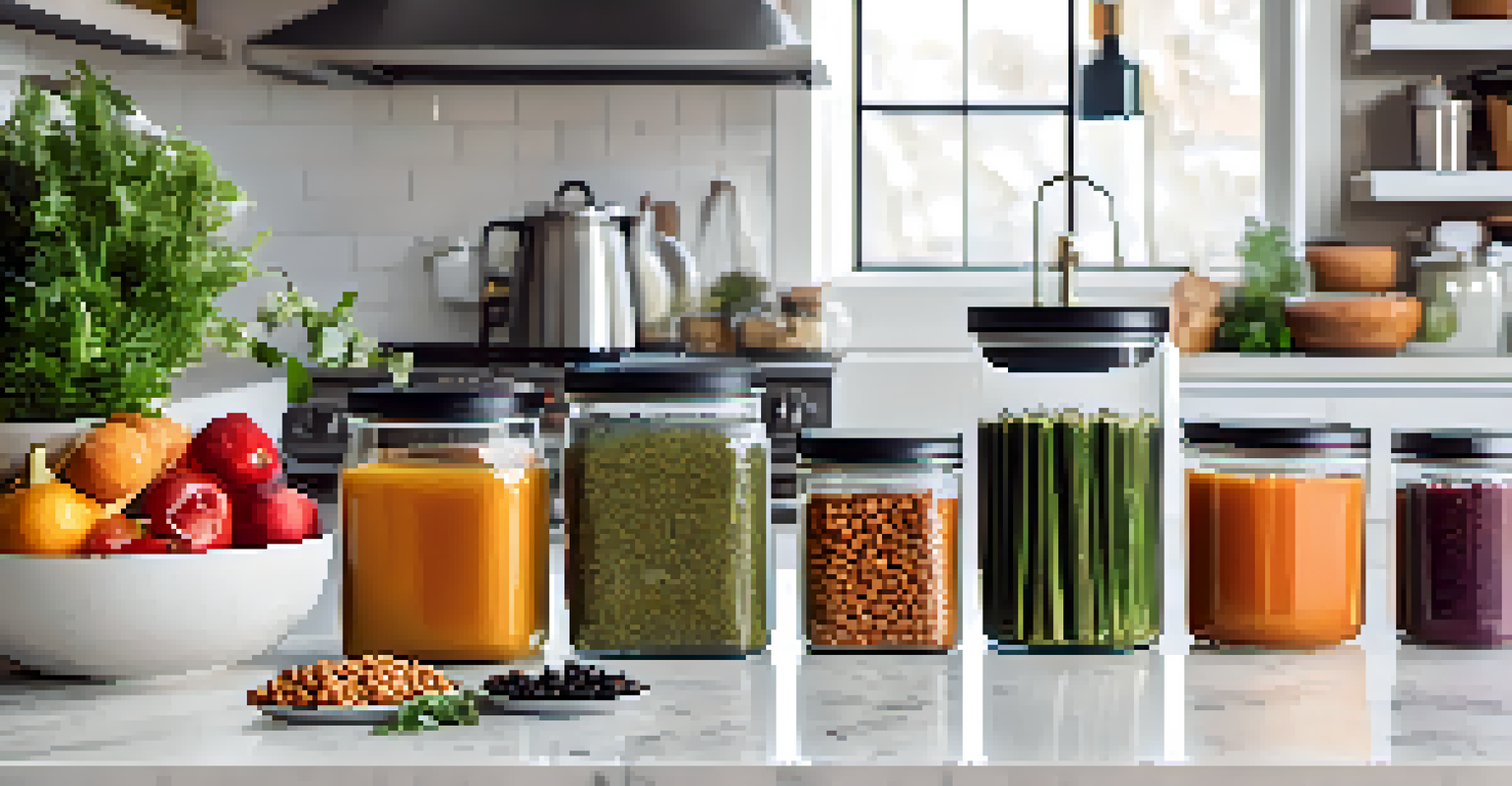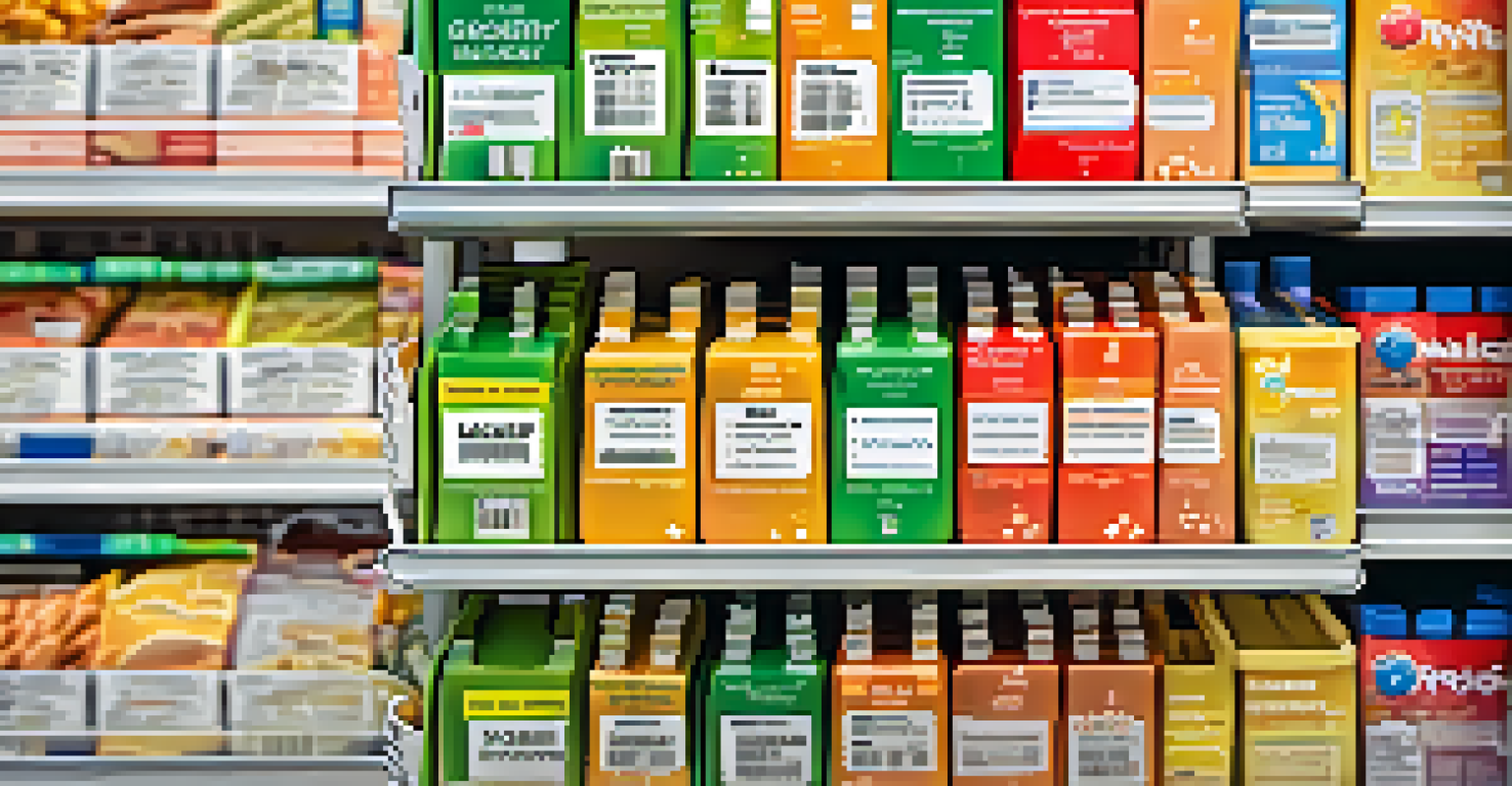Vegan Meal Planning for Optimal Diabetes Management

Understanding Diabetes and Its Dietary Needs
Diabetes is a condition where the body struggles to regulate blood sugar levels. This can lead to various health complications if not managed properly. A well-planned diet is crucial for maintaining stable glucose levels and ensuring overall health.
The food you eat can be either the safest and most powerful form of medicine or the slowest form of poison.
For those living with diabetes, it's important to choose foods that have a low glycemic index (GI). This means selecting meals that won't cause spikes in blood sugar. Foods like whole grains, legumes, and most vegetables are great options for a vegan diet.
Additionally, incorporating healthy fats and proteins can help you feel full and satisfied. Foods like avocados, nuts, and seeds not only support heart health but also play a role in managing blood sugar levels effectively.
Benefits of a Vegan Diet for Diabetes Management
A vegan diet is rich in fiber, vitamins, and antioxidants, which can all contribute to better health outcomes for those with diabetes. Fiber helps slow down the absorption of sugar, leading to steadier blood sugar levels. This can be especially beneficial for those looking to manage their diabetes naturally.

Moreover, a plant-based diet is often lower in saturated fats and cholesterol, reducing the risk of heart disease—a common complication linked with diabetes. By focusing on whole, unprocessed foods, vegans can enjoy a variety of flavors and textures while still keeping their health in check.
Importance of a Vegan Diet
A vegan diet can help manage diabetes by providing fiber, vitamins, and antioxidants that stabilize blood sugar levels.
It's also worth noting that many individuals experience weight loss when switching to a vegan diet, which can further improve insulin sensitivity and overall diabetes management. This shift not only promotes physical health but can also enhance emotional well-being.
Creating a Balanced Vegan Meal Plan
When planning meals, it's essential to include a balance of macronutrients: carbohydrates, proteins, and fats. For example, a meal could consist of quinoa (a whole grain), black beans (protein), and sautéed spinach (vegetable) drizzled with olive oil (healthy fat). This combination ensures that you’re fueling your body in a nutritious way.
Let food be thy medicine and medicine be thy food.
Portion control is also vital in meal planning for diabetes. Measuring out servings can help maintain blood sugar levels and prevent overeating. Using smaller plates and being mindful of portion sizes can make a significant difference in how you feel after meals.
Don't forget to incorporate a variety of colors and types of food into your meal plan. This not only makes your meals visually appealing but also ensures you’re getting a range of nutrients necessary for optimal health.
Essential Foods for a Vegan Diabetes Meal Plan
Certain foods are particularly beneficial for a vegan meal plan aimed at diabetes management. Leafy greens, berries, beans, and whole grains should be staples in your diet. These foods are low in calories yet high in nutrients, making them excellent choices for maintaining energy levels without spiking blood sugar.
Incorporating nuts and seeds can provide healthy fats and proteins, which are essential for balanced meals. For instance, adding chia seeds to a smoothie can increase fiber content without adding too many carbs.
Balanced Meal Planning is Key
Creating a balanced vegan meal plan with macronutrients and portion control is essential for effective diabetes management.
Don't forget about healthy snacks! Options like hummus with vegetables or a handful of almonds can help keep your energy up and blood sugar stable between meals.
Meal Prep Tips for Busy Lifestyles
Meal prepping can be a game changer for those managing diabetes. Setting aside a few hours each week to prepare meals can save time during busy weekdays and help you stick to your meal plan. Consider cooking large batches of staples like quinoa or lentils that can be easily incorporated into different meals.
Using containers to portion out meals for the week can help with portion control and make it easier to grab a healthy option on the go. This way, you can avoid reaching for unhealthy snacks or meals when hunger strikes.
Don't hesitate to get creative with your prep! Freezing portions of soups, stews, and smoothies can provide quick and nutritious options when you need them most.
Understanding Food Labels and Glycemic Index
Reading food labels is crucial for managing diabetes effectively. Look for products that are low in added sugars and high in fiber. Understanding the glycemic index (GI) of foods can also help you make better choices. Foods with a low GI are digested more slowly, leading to gradual increases in blood sugar.
For instance, whole grains and legumes typically have a low GI, while processed foods often have a high GI. Familiarizing yourself with this concept can empower you to make healthier decisions when grocery shopping.
Stay Motivated on Your Journey
Maintaining motivation through community support and achievable goals is crucial for successfully adapting to a vegan lifestyle for diabetes.
Consider keeping a list of your favorite low-GI foods handy. This can serve as a quick reference while shopping or meal planning, making it easier to choose options that align with your dietary goals.
Staying Motivated on Your Vegan Journey
Adopting a vegan lifestyle can bring numerous health benefits, but staying motivated is key. Setting achievable goals, such as trying a new recipe each week or exploring different vegan restaurants, can keep your journey exciting and fulfilling. Celebrating small victories can help reinforce your commitment to this lifestyle.
Joining online communities or local groups can provide support and inspiration. Sharing experiences, recipes, and tips with others who are on a similar path can help you feel less isolated in your journey.

Lastly, remember to be kind to yourself. Transitioning to a vegan diet for diabetes management is a process, and it's okay to have setbacks. Focus on progress rather than perfection, and you'll find it easier to maintain your motivation.